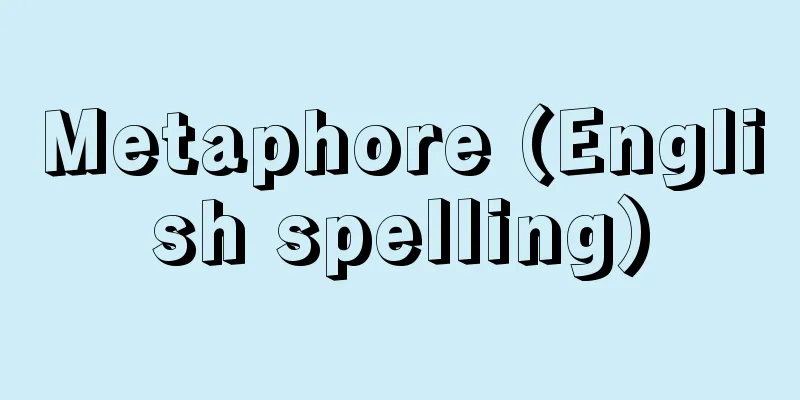Kanki - Kanki

|
〘noun〙 To be criticized by a superior. When a vassal, servant, or child incurs the wrath of a lord, master, parent, etc. Also, the criticism or anger. Disownment. ※Gyokuyo - Juei 3rd year (1184), February 3rd, "Yoritomo is once again exempt from disownment" ※Ukiyo Zoushi, Hana no Nagori (1684), 2 "Perhaps this nun has leaked out and will have to bear the disownment for all eternity ." Source: The Selected Edition of the Japanese Language Dictionary About the Selected Edition of the Japanese Language Dictionary Information |
|
〘名〙 目上の人から、とがめをうけること。臣下、奉公人、子どもなどが、主君、主人、親などの怒りにふれること。また、そのとがめや怒り。勘当。※玉葉‐寿永三年(1184)二月三日「頼朝又免二勘気一云々」※浮世草子・花の名残(1684)二「よしや此事師の尼にもれて未来永劫(みらいゑうごう)の勘気(カンキ)をかうぶるとも」
出典 精選版 日本国語大辞典精選版 日本国語大辞典について 情報 |
<<: Ventilation (Medicine) - Ventilation
Recommend
Quercus lusitanica var.infectoria (English name) Quercus lusitanicavarinfectoria
...The larvae make roughly spherical galls, 15-20...
Advertisement
...His disciple was Govinda, and his disciple was...
Kusa Tamenagi - Stinky Nagi
...In the original Japanese language, it was call...
Emperor's Theatre
Generally, it means a performance for the Emperor,...
Kunio Yanagita - Yanagita Kunio
Founder of Japanese folklore studies. Born in Hyog...
Ori - Cage
Abbreviation for "Olympics." Ori Para.” ...
Astronomical Observation - Tentai Kansoku
It refers to the act of measuring the position, d...
Quantitative geography
A branch of geography that uses mathematical metho...
Iki Province - Ikinokuni
The former name of Iki Island, an island in the G...
Lualhati Bautista
A female Tagalog writer and scriptwriter from the...
Kiyoshi Wada
Born: November 15, 1890, Kanagawa [Died] June 22, ...
Takahashi River
A river that flows south through the western part...
Automobile Emissions Regulations - Automobile Emissions Regulations
To regulate harmful substances emitted from automo...
Ryuta Iida
1920-2007 A haiku poet from the late Showa to Hei...
Alcoa ruling - Alcoa ruling
… However, it is difficult to determine what excl...









